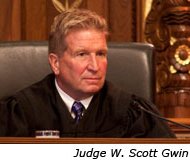
While it takes some municipalities months just to fix a pot hole, apparently all you need is a little revenue stream to get road construction done at a rabbit's pace. After years of work, the final portion of the Texas State Highway 130 toll road has been today weeks ahead of schedule. The newest segments have gotten this new toll road national attention over the last several months for having a posted speed limit of 85 miles per hour along its 41-mile length from just south of Austin to I-10 near Seguin, Texas.
The road was constructed with no cost to the taxpayers by the SH 130 Concession Company, but almost as an added gift to local residents for finishing early, the tolls for the new portion of Texas SH 130 are being waived until November 11. After that, passenger cars and trucks will be charged $0.15 per mile, which adds up to a little over six dollars to drive the length of the new 41-mile, 85-mph stretch. The entire SH 130 toll road now spans 91 miles and acts as a bypass of Austin. Even better, the toll road uses a cashless system that can read either the TxTag decal or the car's license plate, which eliminates pesky toll booths and makes speedy transit even more convenient for motorists.
Credit : Autoblog






 Although
the US Supreme Court is expected to settle the issue of GPS tracking of
motorists soon, a three-judge panel of the Ohio Court of Appeals, Fifth
District ruled 2-1 earlier this month against the warrantless use of
the technology. The majority's decision was likely designed to influence
the deliberations of the higher courts. On November 8, the US Supreme
Court will hear oral arguments in the GPS case
Although
the US Supreme Court is expected to settle the issue of GPS tracking of
motorists soon, a three-judge panel of the Ohio Court of Appeals, Fifth
District ruled 2-1 earlier this month against the warrantless use of
the technology. The majority's decision was likely designed to influence
the deliberations of the higher courts. On November 8, the US Supreme
Court will hear oral arguments in the GPS case 